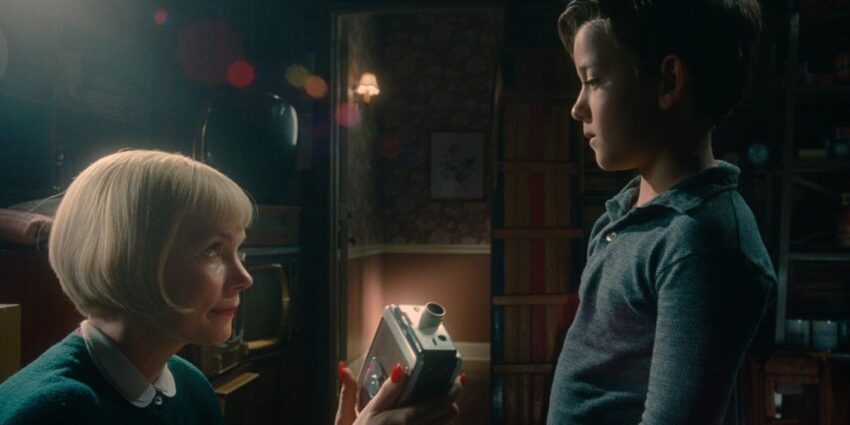Best Picture Showcase: The Fabelmans

Steven Speilberg Turns the Spotlight On Himself In His Most Personal Film To Date
Welles. Warhol. Amadeus. The list goes on and on. Titans of their respected art forms who are destined to be remembered for all of time. While their craft and skill are undeniable, little is ever known about the artist behind the work. For, as fans, all we have to go off of is the expressions they leave within their art, the minute details left behind by broad strokes or quick cuts. But for every artist that hides their life within their work, there are those that use their work to display their life instead. Think of Stephen King’s memoir on craft or Gustave Courbet’s The Desperate Man. Pieces of art that transcend the truth and reality of these beloved figures.
Now, we have The Fabelmans.
Growing up, there was only one director that was a household name in my home. A filmmaker behind some of the most beloved figures in film history, such as everyone’s favorite whip-handling archeologist or the adorable, wrinkly little alien whose only hope is to phone home. He’s scared viewers from going back into the water with a bloodthirsty great white while traumatizing others with harrowing depictions of Nazi-occupied Germany or the beaches of Normandy. Yes, Steven Spielberg was the king of cinema in the Petty household, making his new autobiography The Fabelmans all the more special for this reviewer.
The film is a deceptively simple tale that might not have worked on its own without the notoriety of the man behind the camera. It’s because of Speilberg’s own fame that the movie resonates and compels the viewer, especially budding filmmakers trying to soak up everything they can to make it big. But make no mistake; you don’t have to be a cinephile to enjoy Speilberg’s childhood recollection.
The titular Fabelmans are flawed but perfect, funny but cutting; imperfect people brought together through love and pain. And while he doesn’t restrain from showing their flaws, Speilberg crafts his familiar characters with so much humanity that they feel specific and universal simultaneously. Mitzi Fabelman evokes every mother in the world as she supports and sometimes coddles her eldest’s dreams, and yet, her faults are entirely her’s, as if they could only be the flaws of Speilberg’s mother and no one else. And Williams kills it every step of the way. While there’s no doubt that her role is entirely supporting, Williams elevates every scene she’s in with enough whimsy and mysticism to stand out as one of the film’s highlights. Rounding out the rest of the family is a handful of dedicated performances, such as Paul Dano’s quiet yet influential father figure and Judd Hirsch’s effective single scene as the bombastic Uncle Boris. Even our mini-Speilberg leaves behind an act to remember as newcomer Gabriel LaBelle confidently mimics the infamous director with acute precision.
Backed by this dedicated cast, The Fabelmans seamlessly flows from sequence to sequence as Sammy grows from a precocious little boy to a perceptive young man. As the character grows and develops, so does his passion for the arts, showing an artist at all stages of their creative tenure. Each moment is captured with such precise execution that it feels as if you’re watching an authentic home movie instead of a theatrical blockbuster. If Speilberg directed your home videos, that is. It’s with this intimacy that the director is able to communicate his faults and weaknesses to an audience that adores him. His characters unspool organically, tip-toeing around a wide range of emotions to illuminate them in different shades of morality. Speilberg’s family is perfect, and he makes sure you know this, showing them for who they truly were instead of fabricating the picture-perfect family we all yearn for but can never have. Because how can you truly have something that doesn’t exist?
Above all, The Fabelmans is yet another Speilberg classic large in scope but shot with sharp intimacy. It’s a film that can speak to everyone. A self-portrait of a nuclear family battling their own demons. An inspiring piece for aspiring filmmakers. Or maybe it’s a coming-of-age story for those struggling in adolescence. Whatever you take away is your own, but there’s mistaking the greatness of the story behind the man, the myth, and the legend: Mr. Steven Speilberg.


Leave a Reply